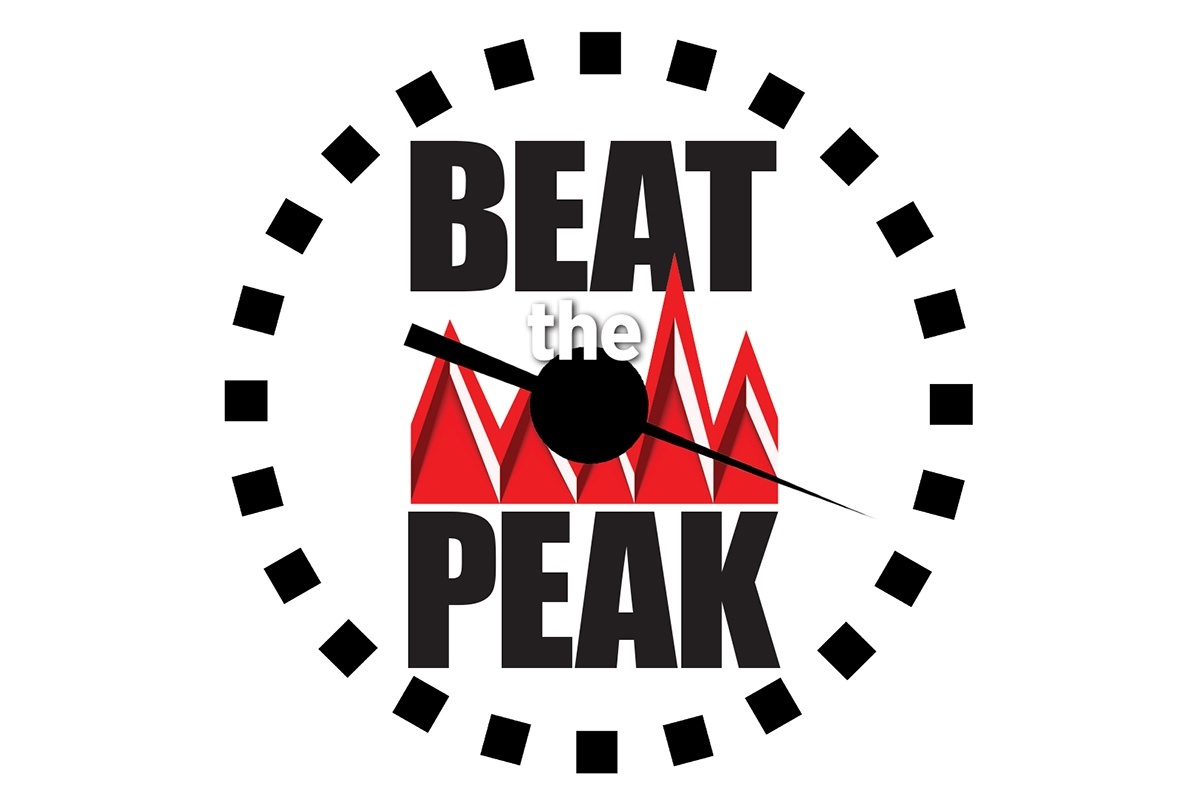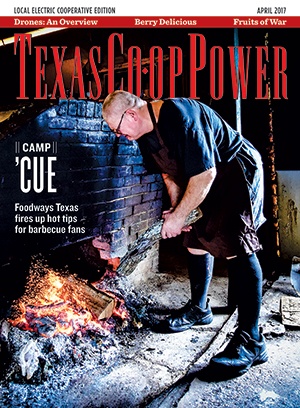As Texas summers sizzle, neighborhoods and shopping centers hum with the drone of air conditioner compressors cooling homes and businesses.
It’s the sound of higher energy usage. And like any other commodity such as gasoline, water or bacon, high demand drives up the price.
However, United Cooperative Services members can cut usage and save energy dollars by signing up for Beat the Peak, an early-warning system that tells consumers when energy prices peak, and how they can help United avoid paying peak prices for wholesale power.
United CEO Cameron Smallwood said the new, minimally invasive Beat the Peak program dovetails into other energy conservation efforts encouraged by the co-op.
“Back in the early 2000s, we really started focusing on how we could help our members out,” Smallwood said. “At that time, the power supply costs were going up in parallel with natural gas prices, putting a strain on member pocketbooks. We embarked on an ambitious program to save members energy and money, and we were one of the first in the country to become national leaders with our energy innovation campaign that we still run today. That’s why we’re choosing to promote Beat the Peak. It’s all about helping our members use less energy. In the end, it’s the right thing to do. That’s why we did it and continue to do it to this day.”
Current wholesale electricity prices are low, Smallwood said, but when (not if) natural gas prices increase in the future, it will affect electricity consumers’ bills. Adapting to tomorrow’s higher prices today saves money in the short-term and will help members be more mindful of energy usage when prices do increase.
Peak usage time often occurs in the late afternoon and early evening when people return home from work and begin adjusting their thermostats in unison, said Marty Haught, Chief Operating Officer of United.
United delivers electricity it purchases from Brazos Electric Cooperative—a generation and transmission cooperative. Those energy costs are passed through to members as a separate line item on their electric bills. Members can help lower United’s power costs when they decrease the overall usage consumed across the system during peak time, which benefits the entire membership.
“Lower demand at peak time lowers the co-op’s overall cost for power,” Haught said. “As a nonprofit entity, United then passes the energy savings on to members through more affordable rates. The more people participate, the more energy and energy dollars are conserved. We encourage all members, residential along with commercial and industrial businesses, to be sensitive to the peak energy use time and make an effort to beat the peak to save energy and relieve some of the congestion on our grid.”
The program is voluntary and benefits all co-op members, he said. Individual members will see neither a cost increase for non-participation, nor a conservation usage credit for those who choose to join the effort.
Members can participate by signing up online to receive text messages that will warn when a peak is about to occur, Haught said. Also, they can watch United’s Facebook and Twitter accounts for these warnings.
When a warning occurs, members are encouraged to raise the thermostat a few degrees in the summer or lower it in the winter. The base thermostat settings United recommends are 78 for summer and 68 for winter, so adjusting during the peak energy time just a few degrees can go a long way to reducing energy costs for the entire membership.
Members should turn off unnecessary lights and delay using major appliances such as driers, ovens, stovetops and dishwashers until the alert time has passed.
For an automated response to beating the peak, some members also may wish to participate in United’s Rush Hour Rewards program by purchasing a Nest thermostat and signing up.
“The Nest thermostat can help our members use less energy during the rush hour by cooling their homes down ahead of the peak and then slightly adjusting the temperature up a few degrees later on when it’s needed,” Haught said. “However, members are still in control. If members start to feel uncomfortable, they can manually change the temperature at any time.”
After signing up, United gives members a one-time $50 bill credit for their initial participation in the program, along with $15 for each summer month they are enrolled—up to $60 a year for each Nest Learning Thermostat in their homes.
There will be a maximum of 15 three-hour rush hour events each summer. Rush hours will occur between 3:30 and 6:30 p.m. on weekdays or weekends. Members would only get one rush hour event a day, and there will never be more than three rush hour events per week.
“This program helps our members save money by allowing minor adjustments to the thermostat during warm days during peak season in the summertime,” Haught said. “Already many members have tried it, and we’ve had it in play for the last summer. We hope to continue that growth this year.”


